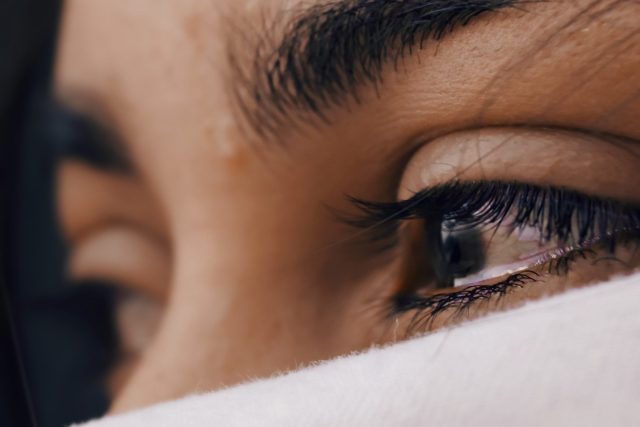How to Cope When People Lack Empathy
By: Demet Çek, Ph.D. | July 7, 2023

Last year I embarked on a journey that required hard work, involved risk, and did not have great odds for a positive outcome. I was going to have an empowering experience bringing my second baby into the world. I believed that if I succeeded, the outcome would be life changing. To prepare for success, I educated myself, built a strong support team around me, made lifestyle changes, and visualized a positive outcome. Despite the best efforts of myself and my team, due to reasons that were beyond my control, I did not get what I had worked for. While this was not my first experience with defeat, the outcome here was final with no second chances. I was in uncharted territory, and I was devastated.
I was fortunate to have a solid support system. Many people around me allowed me the necessary space to process what had happened. However, a few people did not understand why I felt the way I did. I had had a healthy baby so what was the issue? Being happy or grateful does not mean that you don’t also feel pain, grief, or sadness. These seemingly contradictory emotions are not either/or, but rather, both/and. I have a healthy and beautiful baby girl. I feel gratitude and an incredible amount of love for her. And I also grieve the loss of not being able to experience what I worked so hard to get.
Feeling judged and not understood made me think long and hard about empathy. Judgment comes in many forms. Sometimes it’s self-inflicted. We tell ourselves that others have it much worse and therefore we shouldn’t feel pain. Judgement can also come from external sources, when the people around us are quick to draw conclusions based on little or no information. This reaction is invalidating and makes us feel alone.
What is Empathy?
To understand what prevents people from providing empathy, we must first learn about empathy itself. Empathy is the capacity to understand or feel what another person is experiencing from within their frame of reference. Empathy helps us understand others and feel understood. Practicing empathy has many social benefits, such as promoting kindness, enhancing trust, fostering understanding and compassion, and reinforcing deeper connections with others. These positive effects contribute to healthier and more resilient relationships, especially in the face of conflict. When we are empathetic, we practice putting our feelings aside to understand and “feel” the other person, thus contributing to self-awareness and personal growth. The more we experience and express empathy, the better we get at it.
According to Dr. Theresa Wiseman, who studied empathy in healthcare providers, empathy has the following four attributes:
1. Perspective taking: The ability to hold someone else’s perspective and understand it as their truth.
“Something about this feels really hard for you.”
Instead of “This is not a big deal. Think about the positives in the situation.”
2. Non-judgmental: Place one’s own thoughts, assumptions, and biases aside.
“Everyone grieves differently. Give yourself time.”
Instead of “You should focus on all the good things in your life. People have been through much worse.”
3. Emotion recognition: Recognize someone else’s feelings, which requires being in touch with one’s own feelings and setting them aside to focus on the other person.
“You seem really sad about what happened.”
Instead of “I would not be sad if I was in this situation.”
4. Emotion acknowledgement: Communicate your understanding of the person’s feelings directly to them.
“You are grieving. I’m here for you.”
Instead of “Let’s cheer you up.”
As you can see, empathy is a complex process that takes conscious and unconscious effort. According to author and researcher Brené Brown, empathy is a choice because to connect with someone who is suffering, we must connect with a part of ourselves that knows that feeling. To empathize with someone’s loss, we need to connect with a time when we experienced loss and what it was like. To empathize with someone feeling sad, we need to remember when we felt sad. We do not need to have had the exact same lived experience, but we must be willing to search deep within ourselves and access similar emotions. This makes empathy a vulnerable choice. People who are not willing to connect with their own vulnerability cannot provide authentic empathy.
Expressing empathy is a vulnerable and brave choice.
No one can be empathetic all the time. While most people can provide some level of empathy much of the time, the capacity for empathy varies for everyone. Most people can show genuine empathy for situations that they easily understand (e.g., feeling the pain of a friend who lost a loved one.) More nuanced situations, however, may make empathy harder (e.g., understanding someone who is staying in an abusive relationship or someone who betrayed their spouse; understanding someone’s loss when it does not match our description of loss).
When empathy requires more than what people are able or willing to give, they may appear critical, judge, avoid, and be emotionally unavailable.
How to Cope With People Who Lack Empathy
When someone lacks empathy for what we are going through, we feel isolated, misunderstood, and unsupported. Below is a list of strategies to help you cope when people in your life lack empathy:
1. Practice good self-care: Engage in activities that promote health and healing. Consider all aspects of your self-care, including social, physical, mental, logistical, emotional, and spiritual. For example: nurture relationships with people who are supportive, invite healthy movement and proper nutrition to improve your physical wellbeing, stimulate your mind with meaningful conversations and activities, and reduce stress through mindfulness and relaxation exercises.
2. Develop self-compassion: Show yourself grace and be gentle with yourself. Use strategies to cultivate a practice of self-compassion.
3. Experience your emotions: Counterintuitively, the prescription for grief is to grieve. Give yourself permission to feel whatever it is that you are feeling.
4. Communicate your needs: Feelings like anger and frustration have a purpose, and it is important to assertively express your anger, and ask for what you need. Consider sharing with others how their lack of empathy affects you. People may not realize the impact of their actions unless they are told.
5. Expand your support network: Look for individuals or communities that are empathetic and understanding. Talk to friends and loved ones who can provide the support you need.
6. Educate and raise awareness: Disseminate information about the importance of empathy, which may help promote self-awareness and empathetic behaviors in others.
My healing process includes acknowledging and feeling the full range of emotions that I experience, talking to people that I trust, using humor, writing, and practicing gratitude for the little precious moments of each day. This is ultimately an experience of learning and personal growth.
Remember that while it can be challenging to navigate a lack of empathy from others, it does not diminish the value of your emotions.
To learn more about empathy and how to navigate its absence in your life, consider seeking therapy from a member of our talented team at Therapy Changes. You and your San Diego Psychologist will explore what is important and meaningful to you and utilize your strengths to build a road map to healing. If this is your first time in therapy, please read How Therapy Works and What to Expect.
Contact Us today to learn more and to schedule an appointment. You don’t have to do it alone.
Photo by Marco Bianchetti on Unsplash



